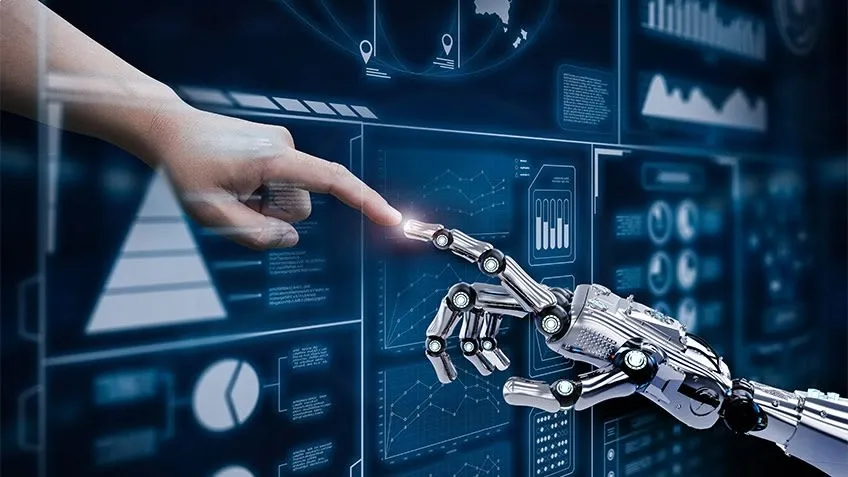From Mechanics to Mechatronics: Exploring the Evolution of Engineering Courses

Engineering has always been a field of innovation and invention, with new technologies and techniques emerging every year. However, in recent years, the field has seen a significant shift in focus, with the traditional mechanics-based programs giving way to the interdisciplinary field of mechatronics. This article will explore this evolution of engineering courses, how it has impacted the field, and what the future may hold.
Mechanics-Based Programs
Mechanical engineering has been a cornerstone of engineering education since its inception. Traditional mechanical engineering programs focus on designing, analyzing, and manufacturing mechanical systems. These systems include power generation systems, engines, machines, and structures, among others.
Mechanical engineering students study topics such as thermodynamics, fluid mechanics, mechanics of materials, and kinematics. These courses help students understand how forces, motion, and energy interact within mechanical systems. By understanding these interactions, students can design and analyze mechanical systems that are efficient, reliable, and cost-effective.
While traditional mechanical engineering programs provide students with a strong foundation in mechanics, they have limitations. These programs tend to be siloed, meaning that students focus only on mechanics and do not receive much exposure to other fields of engineering. Additionally, these programs do not equip students with the skills needed to design systems that incorporate electronics and software.
The Rise of Mechatronics
Mechatronics is an interdisciplinary field that combines mechanical engineering, electronics, and software engineering. The term "mechatronics" was first coined in Japan in the 1960s and was used to describe the integration of electronics and mechanical systems.
Mechatronics programs provide students with a broad understanding of various engineering disciplines, including mechanics, electronics, software engineering, and control systems. Students in mechatronics programs learn how to design and manufacture systems that incorporate both mechanical and electronic components. They also learn how to program and control these systems, making them more efficient, precise, and adaptable.
Mechatronics programs offer several advantages over traditional mechanical engineering programs. First, they provide students with a broader understanding of engineering, which is essential in today's interdisciplinary workplace. Second, mechatronics programs equip students with the skills needed to design and manufacture systems that incorporate electronics and software. Finally, mechatronics programs teach students how to program and control systems, making them more efficient and precise.
Impact on Industry
The rise of mechatronics has had a significant impact on industry, particularly in the manufacturing sector. Mechatronics systems are widely used in manufacturing processes, where they have improved efficiency and accuracy. These systems are also used in the automotive industry, where they are used to control various systems, such as engine performance and safety features.
Mechatronics has also had an impact on the field of robotics. The integration of mechanics, electronics, and software has enabled the development of more advanced robots that can perform complex tasks. These robots are used in various industries, including manufacturing, healthcare, and defense.
The Future of Engineering Education
The evolution of engineering courses from mechanics-based programs to mechatronics has raised questions about the future of engineering education. Many experts believe that mechatronics will become the dominant field in engineering education in the future. This is because mechatronics programs provide students with a broader understanding of engineering and equip them with the skills needed to design and manufacture systems that incorporate electronics and software.
However, some experts argue that traditional mechanical engineering programs will remain relevant in the future. They argue that mechanical engineering programs will continue to be important in industries that rely on mechanical systems, such as the aerospace and construction industries.
Conclusion
In conclusion, the evolution of engineering courses from traditional mechanics-based programs to mechatronics has had a significant impact on the field of engineering. Mechatronics has emerged as an interdisciplinary field that combines mechanics, electronics, and software engineering, providing students with a broad understanding of various engineering disciplines. Mechatronics programs equip students with the skills needed to design and manufacture systems that incorporate electronics and software, making them more efficient, precise, and adaptable. This interdisciplinary approach has had a positive impact on industry, particularly in manufacturing and robotics. While the future of engineering education may continue to evolve, it is clear that mechatronics will play a significant role in the field of engineering in the years to come. Therefore, students who aspire to become engineers should consider studying mechatronics to gain a comprehensive understanding of the field and equip themselves with the skills needed to succeed in the future.
Need help
choosing a Program?
Talk to us about which program best suits your professional career.
Enquire Now
